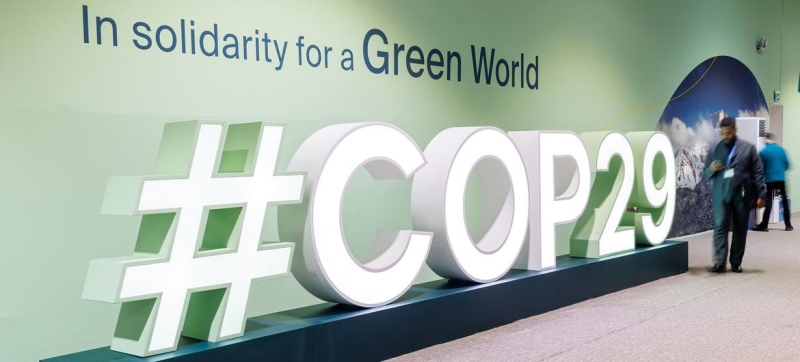
COP29 underway in Baku, Azerbaijan Most displaced live in countries hard hit by climate change Refugees and migrants
People forced to flee war, violence and persecution are increasingly finding themselves on the front lines of the global climate crisis, according to a new report from the UN Refugee Agency (UNHCR) presented at the Climate Conference in Baku on Tuesday.
Of the more than 120 million forcibly displaced people worldwide, three-quarters live in countries severely affected by climate change. Half of these people are in countries affected by both conflict and severe climate shocks, such as Ethiopia, Haiti, Myanmar, Somalia, Sudan and Syria.
The number of countries facing extreme climate hazards is expected to increase from three to 65 by 2040. The vast majority of these will be countries hosting displaced people. By 2050, most places where settlements and refugee camps are located will be subject to extreme heat.
For the world’s most vulnerable people, climate change is a harsh reality that profoundly affects their lives
“For the world’s most vulnerable people, climate change is a harsh reality that profoundly affects their lives,” said UN High Commissioner for Refugees Filippo Grandi.
“The climate crisis is displacing populations in areas already home to large numbers of people displaced by conflict and insecurity, exacerbating their plight and leaving them with no safe place to stay,” he added.
The devastating conflict in Sudan, for example, has forced millions to flee. 700,000 people have crossed the border into Chad, which has hosted refugees for decades and is one of the countries most vulnerable to climate change. Meanwhile, many of those who fled the fighting but remained in Sudan are at risk of further displacement due to severe flooding in that country.
Similarly, 72 percent of refugees from Myanmar are seeking safety in Bangladesh, which has seen extreme natural disasters such as cyclones and floods.
“In our region, where so many people have been displaced from their homes for so many years, we are seeing the effects of climate change unfold before our eyes,” said Grace Dorong, a climate activist and former refugee living in South Sudan.
“I hope the voices in this report will help decision-makers understand that without action, displacement and climate change will get worse. But if they listen, we can be part of the solution,” she added.
The climate emergency is a profound injustice
The report also highlights that climate change and adaptation funding often fails to take into account the interests of refugees and host communities.
The most fragile states currently receive only about $2 per person in annual adaptation funding, compared with $161 per person in stable states. Yet more than 90 per cent of funding for fragile states goes to capital cities, leaving remote areas, including those with refugee camps, underserved.
UNHCR leadership is calling on COP29 delegates to increase climate finance, take action to protect displaced people and give them and their host communities a voice in financial and policy decisions.
“The climate emergency is a profound injustice,” Grandi said. “Solutions exist, but we need urgent action. Without adequate resources and support, those affected will be left in a bind,” he added.
